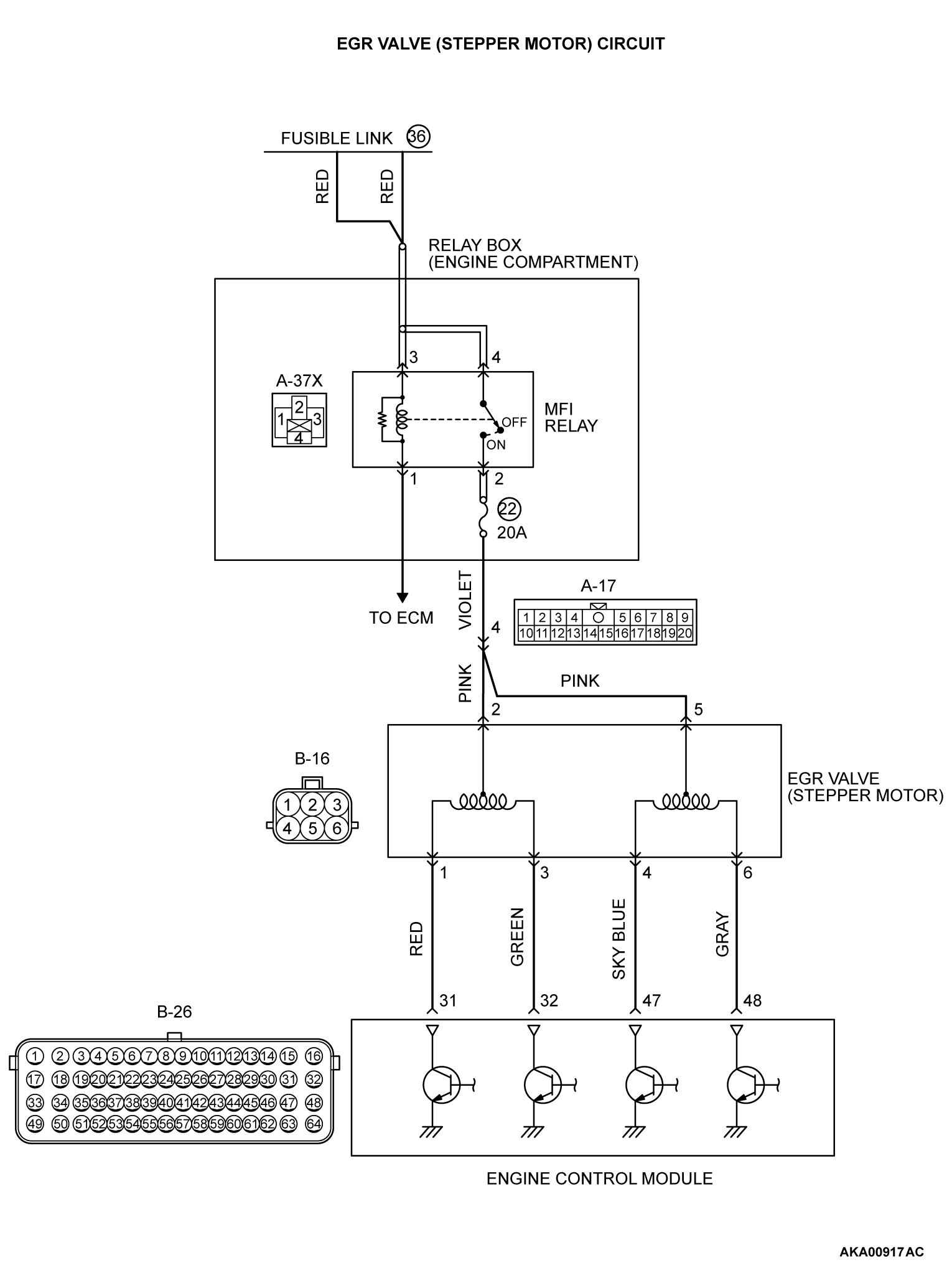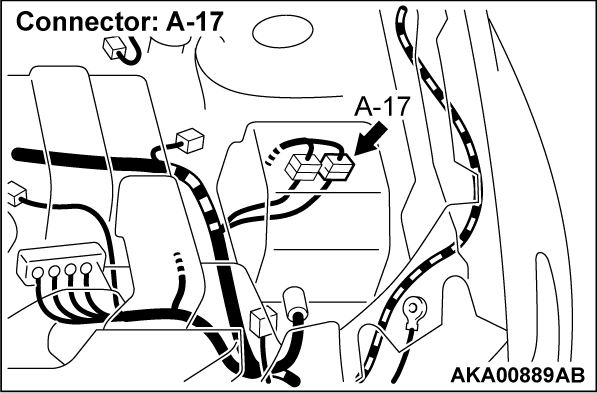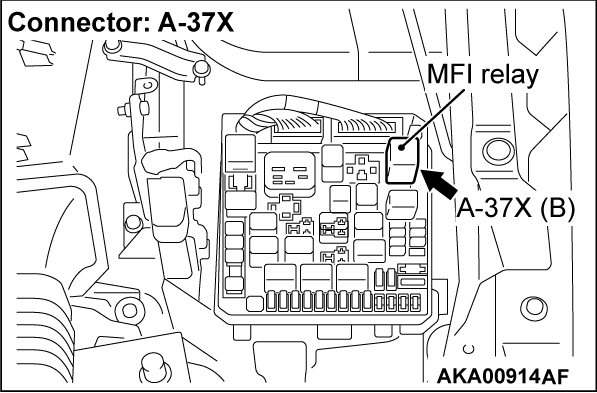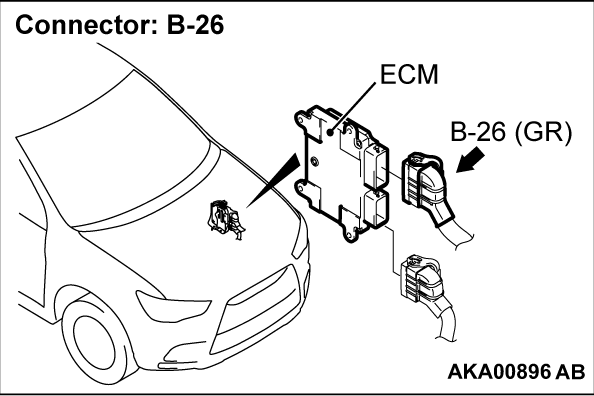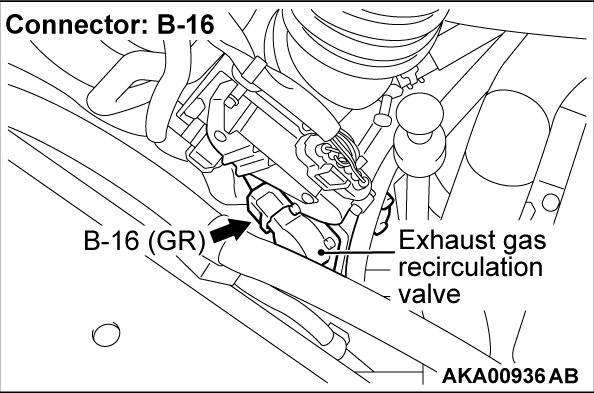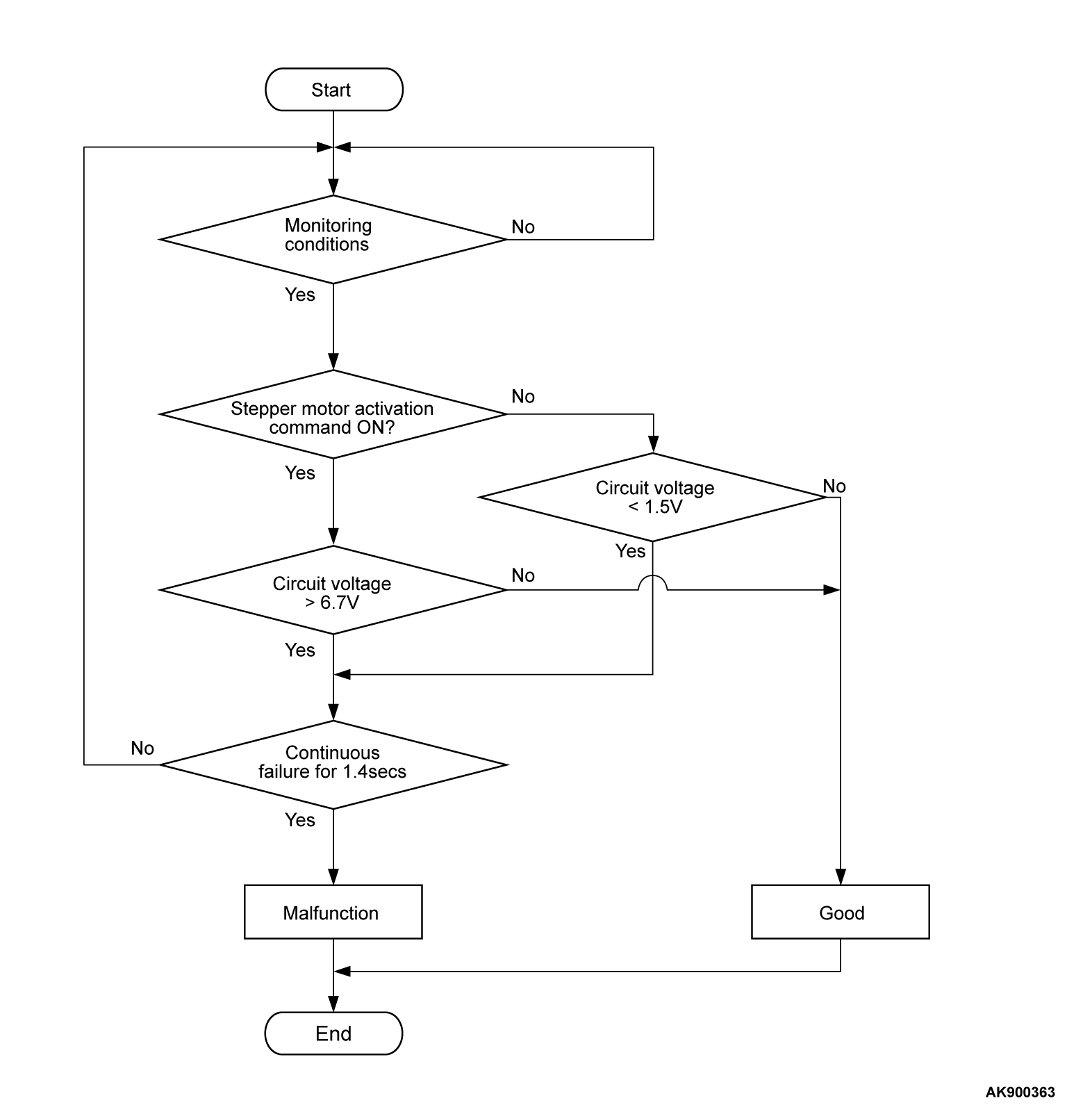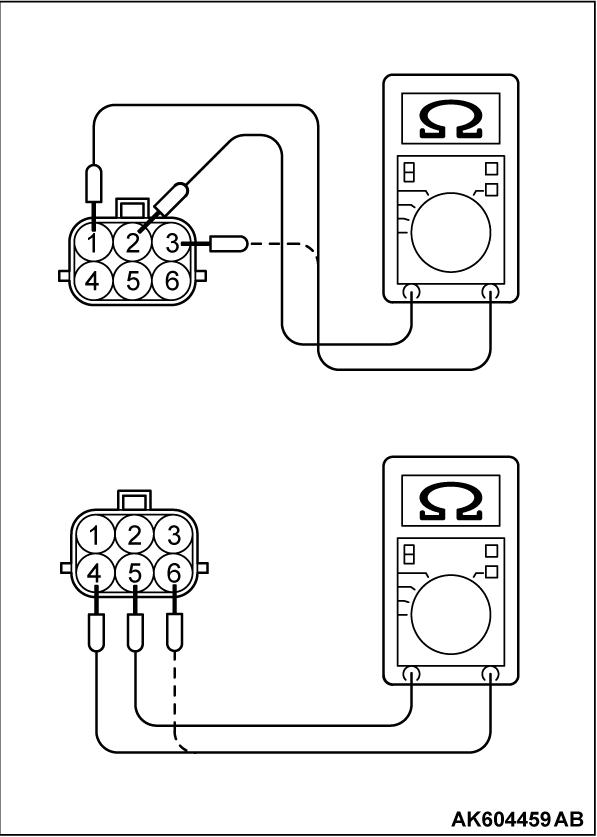DTC P0490: EGR Valve (stepper motor) Circuit Malfunction (battery short)
CIRCUIT OPERATION
- The EGR valve power is supplied from the MFI relay (terminal No. 2).
- The ECM (terminals No. 31, No. 32, No. 47, No. 48) drives the stepper motor by sequentially turning "ON" the power transistors in the ECM and providing ground to the EGR valve (terminal No. 1, No. 3, No. 4, No. 6).
TECHNICAL DESCRIPTION
The ECM checks whether a short circuit to the power supply exists or not by measuring the EGR valve (stepper motor) drive circuit voltage when the current is flowing through the coil of the EGR valve (stepper motor).
DESCRIPTIONS OF MONITOR METHODS
- When the EGR valve (stepper motor) drive circuit voltage is over the specified range, it is judged that a malfunction exists.
MONITOR EXECUTION
- Continuous
MONITOR EXECUTION CONDITIONS (Other monitor and Sensor)
Other Monitor (There is no temporary DTC stored in memory for the item monitored below)
- Exhaust gas recirculation (EGR) stepper motor monitor
Sensor (The sensor below is determined to be normal)
- Mass airflow sensor
- Engine coolant temperature sensor
- Intake air temperature sensor
- Barometric pressure sensor
- Accelerator pedal position sensor
- Manifold absolute pressure sensor
Check Conditions
- Ignition switch is "ON" position.
- Battery positive voltage is between 10 and 16.5 volts.
Judgment Criterion
- When EGR valve is energized, the ECM voltage is more than 6.7 volts for 1.4 seconds.
FAIL-SAFE AND BACKUP FUNCTION
- None
TROUBLESHOOTING HINTS (The most likely causes for this code to be set are:)
- EGR valve (stepper motor) failed.
- Shorted EGR valve (stepper motor) circuit or connector damage.
- ECM failed.
DIAGNOSIS
Required Special Tool:
- MB991958: Scan Tool (M.U.T.-III Sub Assembly)
- MB991824: V.C.I.
- MB991827: USB Cable
- MB991910: Main Harness A
STEP 1. Check harness connector B-16 at EGR valve for damage.
Is the harness connector in good condition?
STEP 2. Check the EGR valve.
(1) Disconnect the EGR valve connector B-16.
(2) Measure the resistance between EGR valve side connector terminal No. 2 and either terminal No. 1 or terminal No. 3.
Standard value: 20 - 24 Ω [at 20°C (68°F)]
(3) Measure the resistance between EGR valve side connector terminal No. 5 and either terminal No. 4 or terminal No. 6
Standard value: 20 - 24 Ω [at 20°C (68°F)]
Is the measured resistance between 20 and 24 Ω [at 20°C (68°F)]?
STEP 3. Check harness connector B-26 at ECM for damage.
Is the harness connector in good condition?
STEP 4. Check for short circuit to power supply between EGR valve connector B-16 and ECM connector B-26.
- EGR valve connector B-16 (terminal No. 1) and ECM connector B-26 (terminal No. 31).
- EGR valve connector B-16 (terminal No. 3) and ECM connector B-26 (terminal No. 32).
- EGR valve connector B-16 (terminal No. 4) and ECM connector B-26 (terminal No. 47).
- EGR valve connector B-16 (terminal No. 6) and ECM connector B-26 (terminal No. 48).
Are the harness wires in good condition?
![[Previous]](../../../buttons/fprev.png)
![[Next]](../../../buttons/fnext.png)
